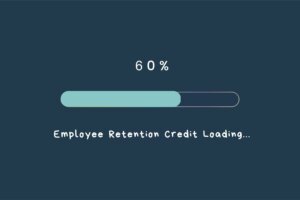As the year-end approaches, and since most non-profits use the calendar year for their tax returns, I wanted to highlight a few important aspects of a charity’s CFC Application and Tax Reporting and its financial management practices.
First, in terms of applying to the CFC, there are three size categories with different levels of financial reporting required. These size categories apply to all types of CFC charities: local, national, and international, and are based on the financial side of the organization – with the requirements more stringent for larger non-profits.
The size categories are:
• Revenue greater than $250,000; an audit is required to be submitted
with the CFC application.
• Revenue is less than $250,000 but more than $100,000. The charity
must use the accrual accounting method and have an audit done
annually by an independent CPA, but this is not submitted with the
CFC application.
• Revenues less than $100,000, the non-profit must make financial information available in a timely manner, but accrual accounting is not required.
Full requirements for the 2013 CFC application are found at: opm.gov/cfc.
+++++++++++++++++++++++++++++++++++++++++++++++++++++++++++++++
§ Organizations with $250,000 or more in annual revenue, as reported on the IRS Form 990, are required to submit an annual audit of fiscal operations by an independent certified public accountant in accordance with Generally Accepted Auditing Standards (GAAS). The audited financial statements and IRS Form 990 must be prepared using the accrual method of accounting and cover the same fiscal period that ended not more than 18 months prior to January 2013 (i.e. ending on or after June 30, 2011).
Include as Attachment C a copy of the auditor’s report and the organization’s complete audited annual financial statements. The audited financial statements must include all statements and audit notes as required by GAAP. The Independent Auditor’s Report must include the signature of the auditor or the auditing firm.
The organization must certify that it accounts for its funds in accordance with Generally Accepted Accounting Principles (GAAP) and has an audit of its fiscal operations completed annually by an independent certified public accountant in accordance with GAAS.*
§ [For] Organizations with total revenue of at least $100,000 but less than $250,000: the certifying official must certify that the organization accounts for its funds in accordance with GAAP and has an audit of its fiscal operations completed annually by an independent certified public accountant in accordance with GAAS. The organization is not required to submit a copy of the audited financial statements with the CFC application. However, the information must be provided to OPM or the LFCC upon request.*
§ Organizations with total revenue of less than $100,000: the certifying official must certify the organization has controls in place to ensure funds are properly accounted for and it can provide accurate timely financial information to interested parties. It is not required to submit financial documentation with the CFC application or maintain its financial records in accordance with GAAP.
* Note that GAAP requires the use of the accrual method of accounting. No other basis of accounting is acceptable under GAAP. The cash basis, modified cash basis, modified accrual, and any other methods are not acceptable. (Emphasis added by author.)
+++++++++++++++++++++++++++++++++++++++++++++++++++++++++++++++
If your non-profit has been just under the $100,000 size and has now grown to above $100,000 it has two new requirements in terms of financial management:
It will need to have an audit performed by an independent CPA and
it will be required to use the accrual method of accounting.
It can be argued that this transition is more significant to an organization than at any other level, so it is important to plan for it, and budget for it.
All CFC Applications Require a Full/Complete 990 to be submitted, even if your non-profit (i.e., religious organizations) is not required to submit a 990 to the IRS or can use one of the shorter forms (990-EZ). The CFC application requires at least a pro-forma 990, signed by the authorizing official as if it were to be submitted to the IRS. With modern tax preparation software, this is not usually hard to do, but more information is required for a complete 990, even if the full 990 is not submitted to the IRS. Just remember to have your tax preparer prepare a pro-forma 990 in addition to the one required by the IRS.
=-=-=-=-=-=-=-=-=-=-=-=-=-=
We’ll be taking a break until January 8th. All of us posting to the Fundraising Blog wish you and yours a healthy, happy…
=-=-=-=-=-=-=-=-=-=-=-=-=-=
During his 25-year career in the Federal sector, Bill Huddleston, The CFC Coach, served in many CFC roles. If you want to participate in the Combined Federal Campaign, maximize your nonprofit’s CFC revenues, or just ask a few questions, contact … Bill Huddleston
=-=-=-=-=-=-=-=-=-=-=-=-=-=
Have you seen The Fundraising Series of ebooks ??
=-=-=-=-=-=-=-=-=-=-=-=-=-=
If you’re reading this online and you would like to comment/expand on the above, or would just like to offer your thoughts on the subject of this posting, we encourage you to “Leave a Reply” at the bottom of this page, click on the feedback link at the top of the page, or send an email to the author of this posting. If you’ve received this posting as an email, click on the email link (above) to communicate with the author.
 Sections of this topic
Sections of this topic
















